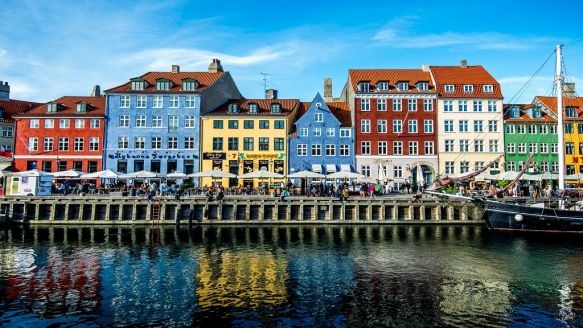China has become a major power in tourism. Over the last ten years travel abroad has increased steadily. Yan Han, Deputy Secretary General of the World Tourism Cities Federation (WTCF), said: “Earnings have risen and television and the internet have made Chinese people more curious to explore other cultures and countries.
The government has made it easier to travel abroad.” The Chinese want to find out about culture and history, visit historical buildings, museums and art. However, they also want entertainment and when in Munich to be able to watch Bayern play, the WTCF manager said. “Football is very popular in China. Where I come from many people know a lot about Germany.” For over 90 per cent of Chinese tourists good travel insurance is part of the deal. “Safety and health are a very important part of travel preparations.“
According to a survey by the WTCF on China’s outbound tourism, which was presented at the ITB Destination Day at the ITB Berlin Convention, over 75 per cent of Chinese travellers believe tourism is vital to happiness and the quality of life. One-third consider tourism to be as important as their family or love.
China’s exports have been increasing for many years and so business trips abroad have become more important. Those who travel abroad do so on average almost five times a year, and those with money choose faraway destinations. On a trip to Argentina or Brazil, for example, Chinese citizens spend an average of 7,250 dollars. A trip to southeast Asia, to Thailand or Myanmar for example, costs around 1,450 dollars, said Han. China’s lust for travel is a little bit like Americans wanting to see as many European countries in the shortest possible time.
Naturally, Chinese tourists abroad love big cities, especially in Europe, among them London, Paris, Rome, Milan, Munich and Berlin. They also knew Frankfurt / Main, he said. Why? “Also because of the big airport”, said Han. “On our way to ITB Berlin myself and many others had to change in Frankfurt.” As far as working with Berlin was concerned he was optimistic about the future. Tourism professionals in China were keen to work more closely with Messe Berlin in tourism field and on other fairs. That applied in particular to the major cities of Beijing, Shanghai and Guangzhou.
On the subject of visa restrictions being relaxed for international travel Han said this was a welcome move and that it would promote tourism. As an example he said that China had been allowing tours of several cities without visas for some time. Dr. Song Rui, director of the Tourism Research Centre, Chinese Academy of Social Sciences, confirmed the positive effects of visa-free travel. Many countries now permitted visitors to stay longer, issued visas on arrival or made it possible to obtain the necessary documents online, the director said at the presentation of the World Tourism Economy Trends 2017 at the ITB Berlin Convention.
International travel was a driving force of the global economy, and according to Dr. Song Rui, in recent years the expanding global travel market and tourism industry have become the biggest economic growth factors worldwide.
The World Tourism Cities Federation is an international non-profit tourism organisation. It has 181 members (119 major cities and 62 institutions) and is based in Beijing.

























